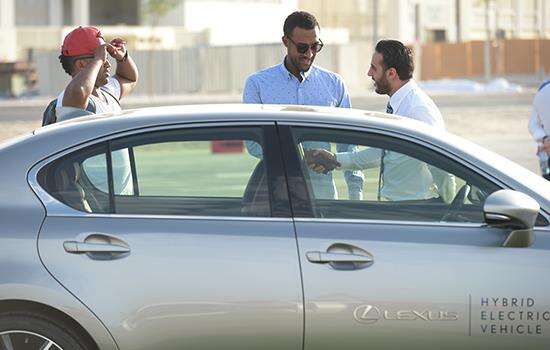The Dubai government has introduced a raft of incentives in partnership with the public and private sectors to encourage the development of greener transport alternatives such as hydrogen, electric and hybrid technology, as it sets new targets designed to ensure the city has the lowest carbon footprint in the world by 2050.
As part of this lofty target, Dubai has announced that 10% of all new vehicles in the city will be hybrid or electric by 2020, with the aim of getting to a point where 2 per cent of all cars in Dubai by the same year will be either electric or hybrid vehicles. The long-term target is for that number to reach 10 per cent by 2030.
Steps have already been taken to reduce the city’s carbon emissions by enshrining it in the government’s ‘Energy Strategy 2050’ initiative, and a massive US$27 billion (AED100 billion) green fund has been set aside to help Dubai achieve its green targets.
New projects underway
A plethora of new public and private projects are being backed to help usher in this new era of sustainability and fuel-efficient vehicles. One recent initiative has been the rollout of 50 electric-powered Tesla taxis and a further 75 Tesla taxis are earmarked for 2019.
Currently, the Roads and Transport Authority (RTA) operates 300 hybrid taxi cars, which is 6 per cent of the total taxi fleet. “We are working to convert 50 per cent of the taxi fleet to hybrid cars by 2021. These vehicles produce 33 per cent less carbon emissions compared to other cars,” said HE Mattar Al Tayer, director-general and chairman of the Board of Executive Directors of the RTA.
The Dubai Supreme Council of Energy (DSCE), in association with the Dubai Electricity and Water Authority (Dewa) and the Roads and Transport Authority (RTA), has set new targets which aim to see carbon emissions reduced by 16 per cent by 2021, insisting that all government organisations must include hybrid and electric vehicles in their fleets.

Al Tayer noted that the RTA has adopted a project to study the requirements for electric-vehicle charging stations and their locations in Dubai.
The Dubai Electricity and Water Authority (DEWA) has pledged this year to increase the number of charging stations for electric cars to 200 as part of the government’s ‘Green Charger Initiative’ in a bid to encourage people to switch from petrol to electric vehicles. Charging stations have been deployed at key locations such as Dubai Airports, Dubai Municipality, RTA, shopping malls, petrol stations, hotels and parking areas.
Yousif Lootah, CEO of Dubai conglomerate SS Lootah Group, is another man on a mission to persuade Dubai’s motorists to switch to more eco-friendly electric cars.
His company has launched a ‘Green Car Programme’ to convert all of its company vehicles to electric or hybrid models. He also wants to raise awareness in the wider public and convince sceptical drivers to go electric.
Alongside the successful implementation of electric-powered taxis, there is currently a trial run of hydrogen-powered taxis in Dubai led by the RTA. The Toyota Mirai is the vehicle being used, which has zero emissions and is noiseless. It can travel 500km before needing a recharge, which typically takes five minutes.
Cars such as the Mirai align with the Dubai Clean Energy Strategy 2050 and the Dubai Plan 2021 to make Dubai a smart and sustainable city.

